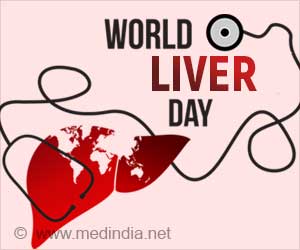Highlights
- Pancreatic cancer accounts for about 3% of all cancers in the US and about 7% of cancer deaths.
- Pancreatic cancer tumor is made of approximately 10% cancer cells and 90% supporting cells.
- Supporting cells release exosomes during chemotherapy making the tumor chemo-resistant.
- The new study focuses on blocking the release of exosomes,to increase efficiency of chemotherapy.
The five-year survival rate is only 8%, making it the only major cancer with a survival rate in the single digits.
The average lifetime risk of pancreatic cancer for both men and women is about 1 in 65 (1.5%).
Despite rising mortality rates, pancreatic cancer is under-researched and underfunded, and there are few Food and Drug Administration-approved treatments to combat the disease.
The current pipeline for drug discovery takes 10 to 15 years from the laboratory to use.
- About 53,070 people (27,670 men and 25,400 women) will be diagnosed with pancreatic cancer.
- About 41,780 people (21,450 men and 20,330 women) will die of pancreatic cancer.
Now, patients suffering from pancreatic cancer may soon face better treatment options due to the latest discovery by Dr. Reginald Hill, Archibald Assistant Professor of Cancer Biology at the University of Notre Dame and researcher at the Harper Cancer Research Institute.
Hill's research focuses on drugs that are already approved by the FDA to find out why those drugs are not working in patients with pancreatic cancer.
"The bulk of a pancreatic cancer tumor is made of approximately 10% cancer cells and 90% supporting cells. Somehow, the supporting cells have figured out how to survive the chemotherapy," Hill said.
Microscopic vesicles called exosomes, are released from supporting cells during chemotherapy exposure, educating the cancer cells on how to survive, resulting in a tumor becoming chemoresistant.
Most new research has focused on destroying supportive cells.
However, those studies concluded that when the supportive cells were attacked, patients actually developed more advanced cancer.
"It was like poking holes into the area around the cancer cells and allowing it to spread," he said.
Hill focused on blocking the release of exosomes, preventing the relay of information from supporting cells to cancer cells, which increased the efficacy of chemotherapy.
This recently published study suggests that using an exosome blocker, which is nontoxic, in combination with standard-of-care chemotherapy will help those with pancreatic and many other cancers as well.
This latest discovery paves the way for those patients to have greater hope.
References
- Key statistics for pancreatic cancer - (http://www.cancer.org/cancer/pancreaticcancer/detailedguide/pancreatic-cancer-key-statistics)
Source-Medindia














